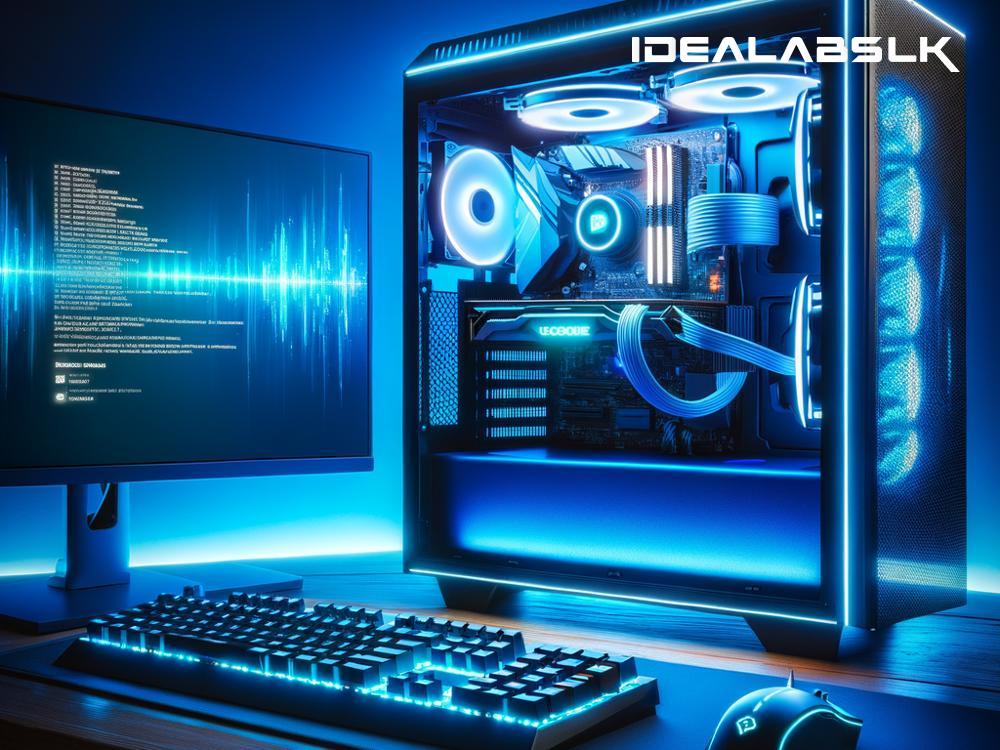How to Fix 'Crashing Games' on High-End PCs
You've spent a small fortune building or buying a high-end PC, expecting a flawless gaming experience. But here you are, facing the frustration of crashing games when it should be smooth sailing. It's like buying a sports car that keeps stalling. Worry not, though; before you consider bench-pressing your monitor out of frustration, let's look at some troubleshooting steps to fix those pesky crashing issues. Remember, you're not alone, and more often than not, there's a solution.
1. Update Your Drivers
Think of drivers as the translators between your PC's hardware and software. If they're outdated, it's like trying to read a street sign in a foreign language. Go to your GPU manufacturer's website (NVIDIA, AMD, or Intel) and download the latest drivers. This simple step can often fix crashing issues.
2. Check for Overheating
Modern games push your PC to its limits, generating a lot of heat. If your system overheats, it might crash to protect itself. Download a temperature monitoring tool and keep an eye on those numbers. Ensure your PC's interior is clean, and all fans are working correctly. Sometimes, adding an extra fan or replacing the thermal paste on your CPU and GPU can make a huge difference.
3. Run a Memory Diagnostic
Defective or failing RAM can cause games to crash unexpectedly. Windows has a built-in tool called "Windows Memory Diagnostic" that can check your memory for problems. To access it, just type "Windows Memory Diagnostic" into the search bar, and follow the prompts. If it finds any issues, consider replacing your RAM sticks.
4. Verify the Game Files
If a particular game keeps crashing, the game files might be the issue. Platform clients like Steam, Origin, or Epic Games Launcher have built-in options to verify the integrity of game files. This process will check if any files are missing or corrupted and replace them. It's a good practice after an unexpected shutdown or crash.
5. Adjust Game Settings
Sometimes, the game settings might be too ambitious, even for a high-end PC. Start by lowering the graphics settings, such as shadows, textures, and anti-aliasing. Also, consider reducing the game's resolution. These adjustments can significantly stabilize the gaming experience. You can gradually increase the settings to find a balance between quality and performance.
6. Reinstall the Game
When all else fails, sometimes starting fresh is the best option. Uninstall the game and delete any remaining files in its directory (don't forget to back up your saves). Then, reinstall the game. This step can clear up any hidden issues that tweaks and fixes couldn't.
7. Check for Software Conflicts
Another potential culprit could be software conflicts. Background applications, especially those that overlay in-game (like screen recorders, chat utilities, or system optimizers), might be interfering with your games. Try disabling these applications one by one to see if the crashes stop.
8. Update Windows
Microsoft regularly releases updates that can improve system stability and fix known issues, including those that may affect games. Make sure your Windows is up-to-date. Sometimes, the solution could be as simple as installing the latest OS update.
9. Check Your Power Supply
An often-overlooked component is the power supply unit (PSU). If your PSU isn’t providing enough power or it's failing, it can cause crashes during gaming when the demand on your system is highest. Make sure your PSU is adequate for your system’s needs, considering an upgrade if it's on the lower end of the power spectrum for your PC’s components.
Conclusion
Crashing games on a high-end PC can be incredibly frustrating, but there's often a fixable issue at hand. By methodically going through these steps, you stand a good chance of diagnosing and solving the problem. Remember to tackle these solutions one at a time and test your game after each step to isolate the cause of the crashes.
Above all, try to maintain a sense of patience and calm - troubleshooting is part detective work, part patience. With these tips, you’re well on your way to getting back into the game. Happy gaming, and may the crashes become a thing of the past!

